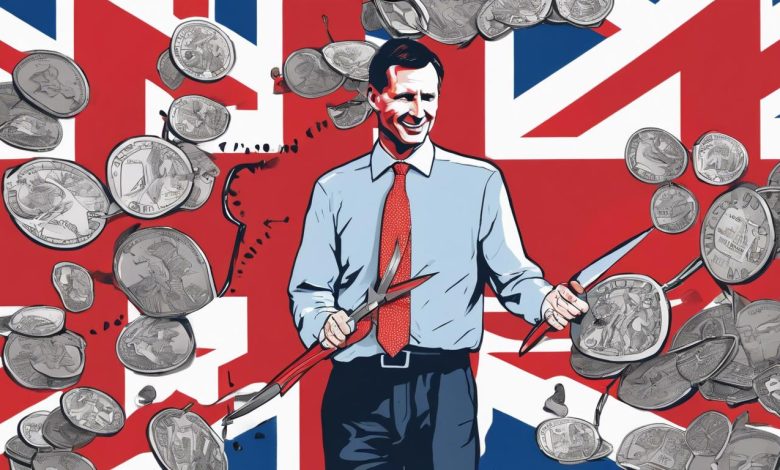Chancellor Jeremy Hunt announces significant tax cut in new budget

In a move to bolster the UK economy, Chancellor Jeremy Hunt’s latest budget includes a 2p cut in national insurance, setting the stage for the lowest personal tax rate since 1975 and prompting discussions on the impact of fiscal policies on economic growth.
In a series of updates from the UK’s economic and financial landscape, Chancellor Jeremy Hunt has introduced a budget aimed at stability, including a notable 2p cut in national insurance, effective from early 2024. This move is set to decrease the personal tax rate to its lowest since 1975, benefiting average employees and self-employed individuals with an extra £450 and £350 annually, respectively. This tax cut is expected to enhance the labour supply by the equivalent of 98,000 full-time workers by 2028-29, according to government projections.
Despite these tax reductions costing £10.5 billion annually, with a net cost of £8.9 billion after considering indirect effects, the Office for Budget Responsibility (OBR) anticipates that the tax-to-GDP ratio will continue to rise over the next five years. Chancellor Hunt has also discussed future plans to potentially abolish class 2 national insurance entirely, emphasizing his commitment to reducing taxes in a responsible manner. However, the budget has faced criticism for the phenomenon of fiscal drag, likely to overshadow the tax cuts for some by pulling more individuals into higher tax brackets.
Simultaneously, the UK economy shows signs of resilience, with sterling gaining strength against major currencies like the US dollar, rising to a seven-month high. This increase reflects a broader optimism among investors about the UK’s economic future, supported by stable politics, positive business surveys, and rising house prices, prompting a forecast of 0.8 per cent economic growth in 2024.
These financial measures and economic indicators represent the UK’s strategic efforts to stabilize its economy amidst ongoing challenges, such as inflation and high living costs for households. The Bank of England, under pressure to maintain its monetary policy, is expected to implement rate cuts this year, aiming to support economic growth without compromising inflation targets.








